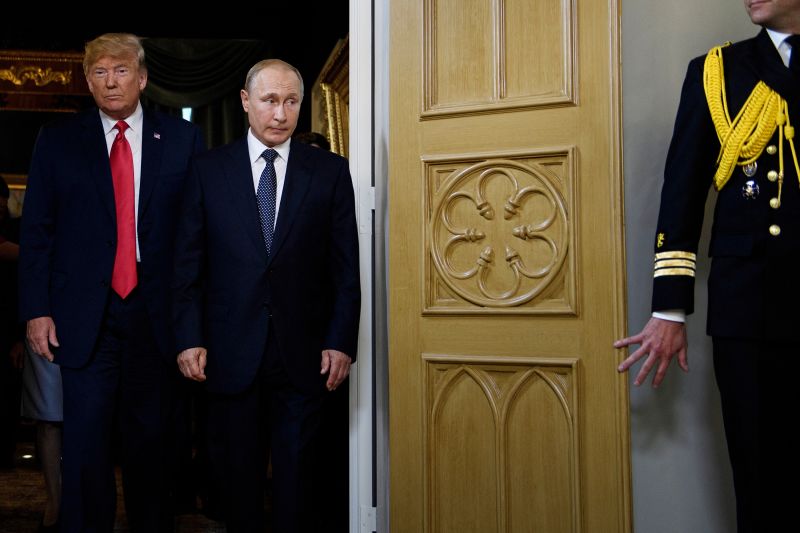Is there a direct link between what US President Donald Trump says and what Russian President Vladimir Putin does?
Certainly, the harsh words and bitter violence of recent days in Ukraine suggest the answer is maybe.
First, President Trump vented his frustrations at the lack of commitment from his Russian counterpart to engage in a serious peace process.
“We get a lot of bullshit thrown at us by Putin, if you want to know the truth,” Trump blustered in a Cabinet meeting on Tuesday. “He’s very nice all of the time, but it turns out to be meaningless,” he complained.
The very next day, as if infuriated by the remarks, Russia launched its largest drone attack on Ukraine, sending 728 drones and 13 missiles to strike cities around the country in multiple waves.
It was a “telling attack,” observed Ukrainian President Volodymyr Zelensky, who condemned the strikes as timed to rebuff peace efforts.
There are apparent signs of a pattern.
Last week, after Trump publicly bemoaned that he had made “no progress” towards a ceasefire after a lengthy telephone call with the Kremlin leader, Russia unleashed yet another massive barrage on Ukraine. It rained down 539 drones and 11 missiles in what Ukrainian officials described as one of the worst attacks of the conflict.
You might be forgiven for thinking that every time President Trump expresses anger, frustration or even negativity about his Kremlin counterpart, the immediate response from Russia is to step up the ruthless punishment it metes out to its Ukrainian neighbor.
But it’s not as straightforward as that.
The problem is, Russia also carries out devastating strikes on Ukraine during periods when the US president is relatively silent about the conflict he notoriously vowed to end in a single day.
On June 29, for example, Moscow launched 477 drones and 60 missiles against Ukraine – at the time, the biggest Russian aerial assault of the war. Yet President Trump had made few significant public comments about Russia in the days before.
Furthermore, when President Trump told fellow G7 leaders of industrialized democracies that he essentially regretted the absence of Putin at the June summit, and criticized previous leaders for kicking Russia out of what was then the G8. Moscow went on to ratchet up attacks on Kyiv, killing at least 28 people in a single night of drone and missile strikes on the Ukrainian capital days later.
Even positive remarks from the US president, which you might reasonably expect to temper any simmering Russian anger at how it is spoken about in the White House, do not appear to act as a brake on the Kremlin’s excesses.
For its part, the Kremlin has played down any suggestion that President Trump’s recent critical outburst has had much impact.
“We are taking it quite calmly,” the Kremlin spokesman, Dmitry Peskov, told reporters on a daily conference call, adding that “Trump, in general, tends to use a fairly tough style and expressions.”
In reality, Russian military tactics are much more likely to be driven by its own unrelenting military objective of seizing as much territory as possible before the grinding conflict in Ukraine, now in its fourth year, ultimately comes to a halt.
Likewise, the terrifying increase in the use of Russian drones in recent weeks is more likely to be a reflection of missile shortages and increased drone production in Russia than any angry Putin retort to one of President Trump’s off-hand comments.

